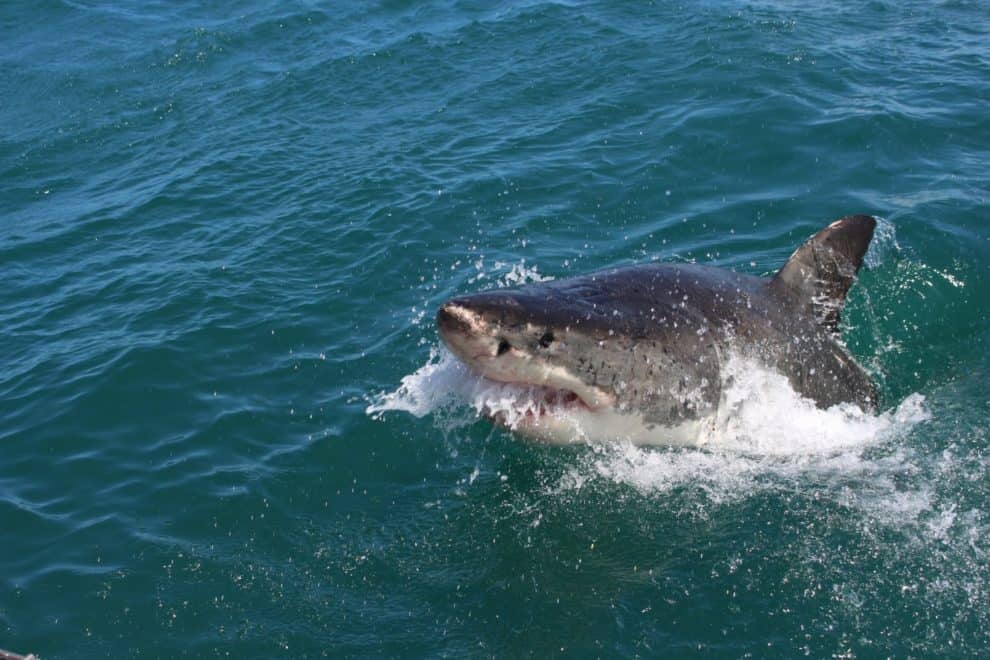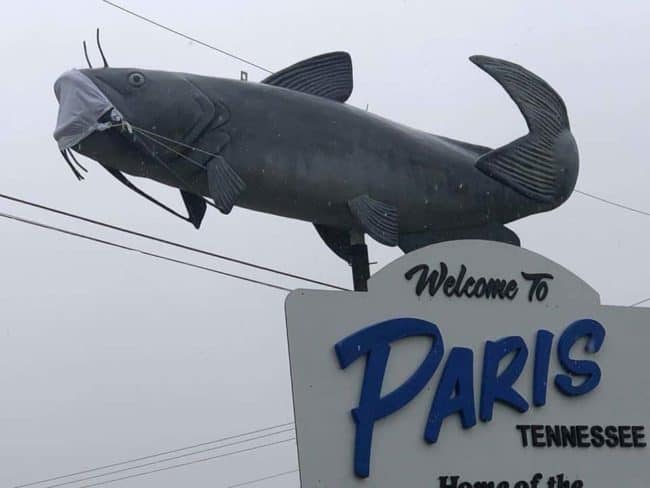
- People have been fascinated by–and terrified of–sharks for centuries.
- Unprovoked shark attacks are rare, fatal attacks even more so.
- 2019 had 64 unprovoked shark attacks well below the five year annual average of 82.
In a typical year one of the unmistakable signs that Summer has arrived is an onslaught of media shark attack hysteria. That hasn’t been the case in 2020. The sharks are still out there but they’ve had the beachfront area to themselves for much past few months. The COVID-19 pandemic has simultaneously kept the majority of the world’s population homebound and kept the media on 24/7 coronavirus watch. The result has been 2020 shark bite media coverage that has been downright muted.
At some point, the media will return to becoming hysterical over non-existent threats and shark bite mania will be back. I’d like to think that the American people have spent some of their pandemic lockdown time learning enough probability theory to finally wrap their head around the true threat posed by sharks but that’s highly unlikely. Here’s some perspective on the actual danger of shark attacks:
“Many more people are injured and killed on land while driving to and from the beach than by sharks in the water. Shark attack trauma is also less common than such beach-related injuries as spinal damage, dehydration, jellyfish and stingray stings and sunburn. Indeed, many more sutures are expended on sea shell lacerations of the feet than on shark bites!”
Incidentally, I did everything within my power to find a picture of a shark wearing a face mask for this article. The best I could do was a giant catfish wearing a face mask.

RECENT SHARK ATTACK TRENDS
Scientists don’t worry much about year-to-year changes in the number of shark attacks and that suggests that the fact we’re on a decade long run of declining numbers is due to variance. At least that’s my take on it. The experts who maintain the International Shark Attack File think it might be legitimate:
Unprovoked shark attacks, including fatalities, have been on a steady decrease over the past decade. 2019 continued this trend, reflecting advances in beach safety, medical treatment, and public awareness. Therefore the continued improvement of these areas is of the utmost importance.
The tally for 2019 showed 64 unprovoked shark bites or 22% less than the five year average of 82 per year. There were two fatal shark bites, also down from the average of four deaths per year. The United States actually saw an increase in shark bites with 41, up from 32 in 2018. That number is still significantly less than the five year US average of 61 bites annually. As is always the case, Florida led the way among US states with 21 unprovoked attacks.
Gavin Naylor, director of the Florida Museum of Natural History’s shark research program, thinks the trendline of declining shark bites might be due to a change in migration patterns of blacktip sharks. They’re the species most often implicated for shark bites in Florida:
“We’ve had back-to-back years with unusual decreases in shark attacks, and we know that people aren’t spending less time in the water. This suggests sharks aren’t frequenting the same places they have in the past. But it’s too early to say this is the new normal.”
SHARK ATTACKS IN THE COVID-19 ERA
So what will happen in 2020 when people definitely *are* spending less time in the water and just about anywhere else? The COVID-19 pandemic and worldwide mitigation efforts throw some very interesting variables into the mix. People are definitely traveling less though there have been anecdotal reports of crowded beaches here and there. Fewer people going to the beach in theory gives sharks fewer opportunities to attack. That could be negated by any change in the shark population or migration habits. Are sharks drawn to the activity around beaches? Are they drawn to food–particularly from fishing boats? Maybe the amount of human activity at a popular beach actually scares them off meaning that there could be more sharks around with all of us humans locked down.
One of my favorite data sources is the Global Shark Attack File but it hasn’t been updated since February 5, 2020. This presumably has more to do with COVID-19 lockdowns than anything else because there have been a number of shark attacks reported since then. Thankfully, there’s another resource with similar information at a website called ‘Tracking Sharks’. Their records indicate that as of July 4 there have been 23 unprovoked shark attacks worldwide with five fatalities. There have been 7 in the United States with one fatality. Australia has had 11 shark attacks with 4 fatal. In 2019, there were 34 unprovoked attacks between the first of the year and July 4th so it looks as if 2020 will be below average. The five fatalities are already higher than last year and higher than the five year average.
All five fatalities this year were suffered by surfers or divers. This isn’t surprising as salt water recreation enthusiasts suffer the majority of unprovoked shark attacks with surfers the most vulnerable. Through the end of 2019 58% of all shark attacks had ‘surfing’ listed as the ocean activity in question at the time of the bite. Surfers are very mindful of this risk and understand it much the same way that backcountry snowboarders understand avalanches and avalanche safety.
SHARK ATTACKS 2020 PROPOSITION BETTING ODDS
TOTAL NUMBER OF REPORTED UNPROVOKED SHARK ATTACKS WORLDWIDE IN 2020?
Over 53.5 +150 Under 53.5 -180
WILL THE NUMBER OF REPORTED SHARK ATTACKS WORLDWIDE IN 2020 BREAK THE ALL TIME YEARLY RECORD OF 98 REPORTED IN 2015?
Yes +5000 No -10000
PERCENTAGE OF TOTAL SHARK ATTACKS EXPERIENCED BY SURFERS IN 2020?
Over 57.5% -150 Under 57.5% +130
US STATE WITH THE HIGHEST NUMBER OF REPORTED UNPROVOKED SHARK ATTACKS IN 2020?
Florida -600 Hawaii +750 California +1500 South Carolina +2500 North Carolina +2500 Texas +3500 Oregon +5000 New Jersey +5000 Georgia +5000 New York +5000 Alabama +5000 Massachusetts +10000 Any Other State +25000
US COUNTY WITH THE HIGHEST NUMBER OF REPORTED UNPROVOKED SHARK ATTACKS IN 2020?
Volusia County, Florida (Daytona area) -350 Brevard County, Florida (Cocoa Beach area) +500 Palm Beach County, Florida +1000 Maui County, Hawaii +1500 Horry County, South Carolina (Myrtle Beach) +2500 Charleston County, South Carolina +2500 Honolulu County, Hawaii +3500 New Hanover County, North Carolina (Wilmington) +3500 St. Johns County, Florida (St. Augustine Beach) +5000 Barnstable County, Massachusetts (Cape Cod) +10000
NUMBER OF UNPROVOKED SHARK ATTACKS REPORTED IN FLORIDA IN 2020?
Over 16.5 -150 Under 16.5 +130
NUMBER OF UNPROVOKED SHARK ATTACKS REPORTED IN AUSTRALIA IN 2020?
Over 13.5 -180 Under 13.5 +150
AUSTRALIAN STATE/TERRITORY WITH THE HIGHEST NUMBER OF REPORTED UNPROVOKED SHARK ATTACKS IN 2020?
New South Wales +125
Western Australia +200
Queensland +250
Victoria +750
South Australia +2500
Northern Territory +2500
2020 SURF SPOT SHARK ATTACKS HEAD TO HEAD MATCHUPS
WHICH WILL BE HIGHER IN 2020?
Shark attacks at Cocoa Beach, Florida -250 Shark attacks at Hanaleai Bay, Hawaii +210
WHICH WILL BE HIGHER IN 2020?
Shark attacks at Bells Beach, Australia -250 Shark attacks at Huntington Beach, California +210
WHICH WILL BE HIGHER IN 2020?
Shark attacks at Glenelg Beach, Australia +150 Shark attacks at San Onofre State Beach, California -180
WHICH WILL BE HIGHER IN 2020?
Shark attacks at Crescent Head, Australia -210 Shark attacks at Haleiwa, Hawaii +180
WHICH WILL BE HIGHER IN 2020?
Shark attacks at Scripps La Jolla, California +300
Shark attacks at Jacksonville Beach, Florida -350
WHICH WILL BE HIGHER IN 2020?
Shark attacks at Mavericks, California +130 Shark attacks at Gold Coast, Australia -150
WHICH WILL BE HIGHER IN 2020?
Shark attacks at Jeffrey's Bay, South Africa -250 Shark attacks at Playa Brava, Ecuador +210
WHICH WILL BE HIGHER IN 2020?
Shark attacks at Rincon, Puerto Rico -180
Shark attacks at Hanaleai Bay, Hawaii +150
WHICH WILL BE HIGHER IN 2020?
Shark attacks at Bondi Beach, Australia -250
Shark attacks at Teahupo'o, Tahiti +210
All proposition wagers will be graded based on unprovoked shark attacks only using data from the Shark Research Institute









